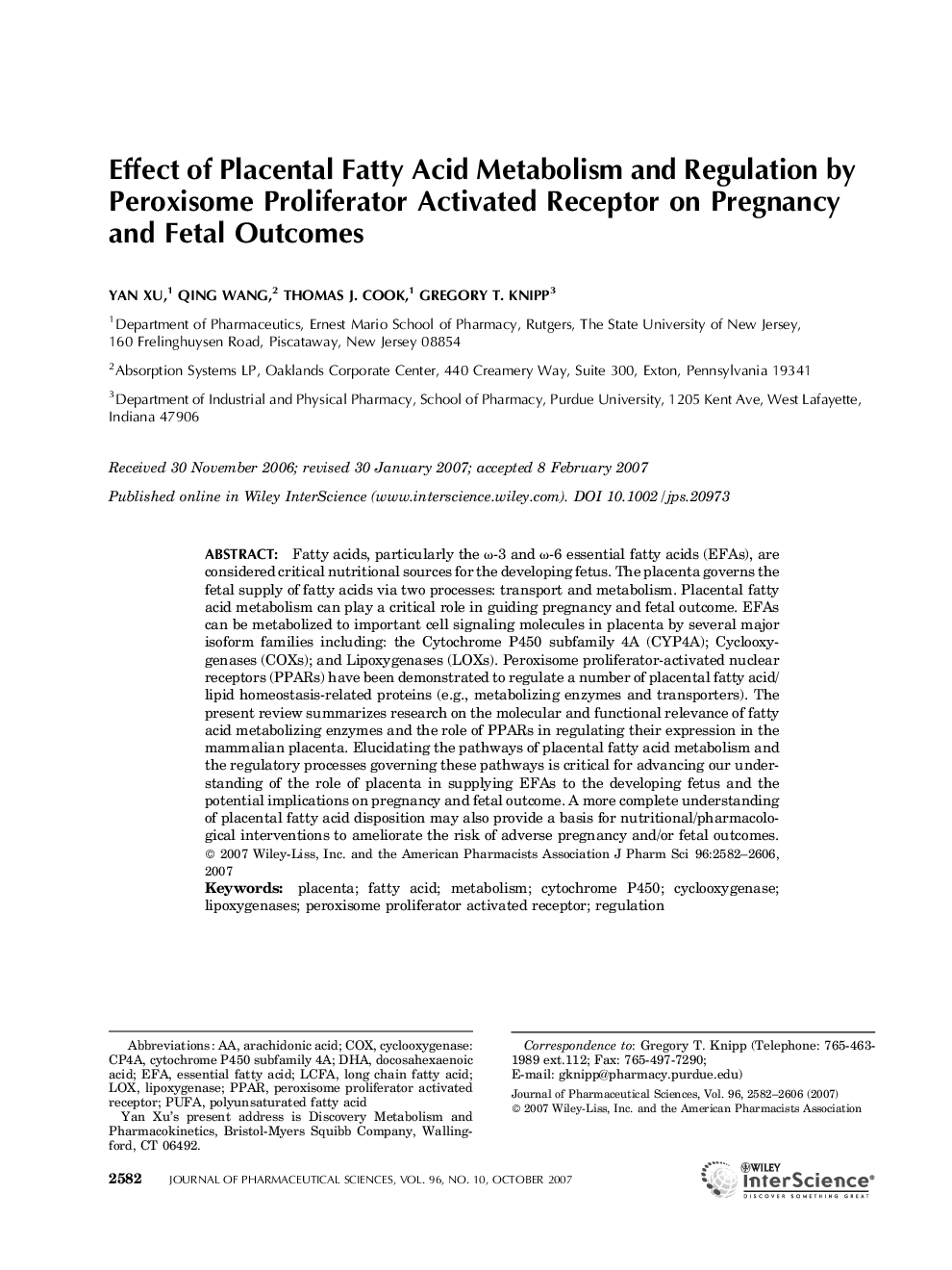| Article ID | Journal | Published Year | Pages | File Type |
|---|---|---|---|---|
| 2485871 | Journal of Pharmaceutical Sciences | 2007 | 25 Pages |
Abstract
Fatty acids, particularly the Ïâ3 and Ïâ6 essential fatty acids (EFAs), are considered critical nutritional sources for the developing fetus. The placenta governs the fetal supply of fatty acids via two processes: transport and metabolism. Placental fatty acid metabolism can play a critical role in guiding pregnancy and fetal outcome. EFAs can be metabolized to important cell signaling molecules in placenta by several major isoform families including: the Cytochrome P450 subfamily 4A (CYP4A); Cyclooxygenases (COXs); and Lipoxygenases (LOXs). Peroxisome proliferatorâactivated nuclear receptors (PPARs) have been demonstrated to regulate a number of placental fatty acid/lipid homeostasisârelated proteins (e.g., metabolizing enzymes and transporters). The present review summarizes research on the molecular and functional relevance of fatty acid metabolizing enzymes and the role of PPARs in regulating their expression in the mammalian placenta. Elucidating the pathways of placental fatty acid metabolism and the regulatory processes governing these pathways is critical for advancing our understanding of the role of placenta in supplying EFAs to the developing fetus and the potential implications on pregnancy and fetal outcome. A more complete understanding of placental fatty acid disposition may also provide a basis for nutritional/pharmacological interventions to ameliorate the risk of adverse pregnancy and/or fetal outcomes. © 2007 WileyâLiss, Inc. and the American Pharmacists Association J Pharm Sci 96: 2582-2606, 2007
Keywords
Related Topics
Health Sciences
Pharmacology, Toxicology and Pharmaceutical Science
Drug Discovery
Authors
Yan Xu, Qing Wang, Thomas J. Cook, Gregory T. Knipp,
